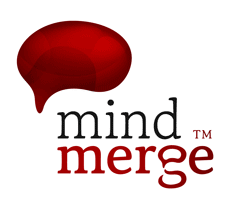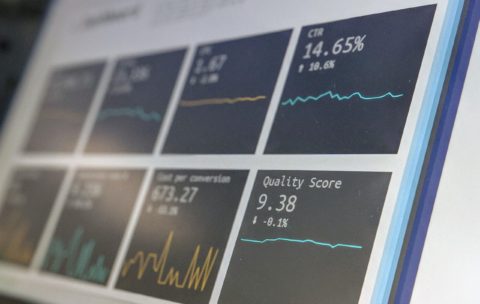CONTRACT MANAGEMENT
What you'll learn
Identify the major skills that are critical for contract professionals
Demonstrate the importance of communication in contract management including written, verbal and non-verbal
Prepare for negotiating contracts and conduct contract related negotiations in a formal structured manner
Outline the key issues and risks that can affect the contract and determine the appropriate responses for the identified risks
Develop project plans and mechanisms for monitoring and controlling contractor performance
Certificate in Engineering, Procurement, and Construction (EPC) Contracts
What you'll learn
Achieve a complete overview of EPC projects
Recognize the critical elements of a project plan and contracting strategy
Develop an understanding of the risks involved and necessary aspects of the EPC contracts
Get acquainted with the EPC contract award process
Gain insights into effective contract administration and performance management
Adding Value through Procurement
What you'll learn
Analyze internal spend and supply market dynamics to provide a foundation for sourcing plans
Execute different sourcing strategies to optimize savings and ensure supply security
Identify appropriate suppliers for effective execution of sourcing plans
Describe operational and strategic procurement processes for better value
Manage performance of procurement processes for continuous improvement
Warehouse Operations and Management
What you'll learn
Explain the challenges, objectives and functions of warehousing
Perform ABC inventory classification and cycle counting and calculate record accuracy and discrepancies
Describe the different types of storage and material handling systems
Improve supervisory skills and deal more effectively with warehouse staff issues
Develop better skills for housekeeping and safety within the warehouse
Measure warehouse productivity using the right Key Performance Indicators (KPIs) and conduct a scientific audit of the warehouse
Certified Procurement Professional (CPP)
What you'll learn
Identify the important organizational role of the procurement department
Use proper negotiation techniques with suppliers
Evaluate the performance of the department at the macro level
Decide how to choose the best suppliers for their operations
Apply the latest innovative procurement techniques for the 21st Century
Purchasing Management and Cost Saving Techniques
What you'll learn
Define the strategic role of the purchasing department
Perform accurate supplier evaluation
Develop effective negotiation strategies with all suppliers
Explain the importance of value analysis to purchasing
Evaluate the performance of the department using proper Key Performance Indicators (KPIs)
Improve the efficiency of the purchasing department
Logistics Management
What you'll learn
Recognize modern supply chain and logistics trends as a basis for sustainable performance
Describe the role of transportation in logistics and identify opportunities for operational improvement
Identify the role of warehousing, focusing on operational throughput and performance optimization
Employ effective techniques for optimizing inventory
Apply the Supply Chain Operations Reference (SCOR) framework to manage strategic, operational and tactical facets of logistics
Supply Chain Operations: Principles for Continuity and Sustainability
What you'll learn
Identify the foundations of strong supply chains for continuity and sustainable operations
Outline supply chain design practices for optimum performance
Engage in continuity planning to manage supply chain interruptions
Develop stakeholder engagement strategies to improve supply stream resilience
Recognize ethical, sustainability and responsibility practices as a backbone for strong supply chains
Inventory and Supply Chain Management
What you'll learn
Describe the objectives and functions of inventory and supply chain management (stock control, purchasing, stores and physical distribution) and explain how they relate to each other
Categorize stock items based on the ABC classification model
Calculate future demand for different stock items
Identify Reorder Points (ROP), Economic Order Quantity (EOQ) and Safety Stocks (SS) for different stock items
Apply the basic purchasing processes and use Incoterms appropriately
Identify best practices in warehouses to maintain accurate inventory records
List the various transportation functions and costs
Risk and information Systems Control (CRISC)
What you'll learn
Identify the IT risk management strategy in support of business objectives and alignment with the Enterprise Risk Management (ERM) Strategy.
Analyze and evaluate IT risk to determine the likelihood and impact on business objectives to enable risk-based decision making.
Determine risk response options and evaluate their efficiency and effectiveness to manage risk in alignment with business objectives.
Continuously monitor and report on IT risk and controls to relevant stakeholders to ensure the continued efficiency and effectiveness of the IT risk management strategy and its alignment with business objectives.
Certified Supply Chain Professional (CSCP)
What you'll learn
This CSCP program helps you demonstrate your knowledge and organizational skills for developing more streamlined operations
Warehouse Inventory Management
What you'll learn
Understand terms that are frequently used in warehouse management.
identify the goals and objectives of inventory management, and measure their process against these goals.
Calculate safety stock, reorder points, and order quantities.
Evaluate inventory management systems.
Identify the parts of the inventory cycle.
Better maintain inventory accuracy.
Warehousing concepts, Equipment and processes.
Warehouse KPI and why they matter to employees?
Warehouse and distribution center automation, Robotics and working alonside Artificial Intelligence.
Explain the challenges, objectives and functions of warehousing.
Perform ABC inventory classification and cycle counting and calculate record accuracy and discrepencies.
Describe the different types of storage and material handling systems.
Improve supervisory skills and deal more effectively with warehouse staff issues.
Develop better skills for housekeeping and safety within the warehouse.
PECB Certified – ISO 31000 – RISK MANAGER
What you'll learn
Introduction to ISO 31000 and risk management and establishing the risk management framework.
Initiation of the risk management process and risk assessment based on ISO 31000.
Risk Treatment, recording and reporting, monitoring and review, and communication and consultation according to ISO 31000.















